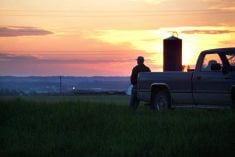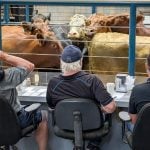Joint ownership between spouses has been a long-standing fixture in the farming community, with each holding equal influence when it comes to making key business decisions.
It is widely acknowledged and recognized that spouses are key influencers in business decisions. They have always stood front and centre in financial negotiations, are equal participants in professional development, and serve as essential signatories in business dealings.
Yet a challenge persists that’s common for many spousal partnerships: walking the fine line between a personal relationship and a business one.
Read Also

‘No agenda, no attenda’: How to professionalize your family farm meetings
Establishing meeting ground rules can help a farm family find ways to communicate that work for the business and the family.
What if?
Many family-owned agricultural operations are built on informal partnerships between a husband and wife that have never been formalized beyond the basic mortgage and loan paperwork.
Since couples often count on the strength of their personal bond as enough to keep the business moving, many do not go through the processes to consider how they will handle the five “Ds”; Death, Disagreement, Debt, Divorce, Disability. What if the marriage should fail? Or a spouse is injured or dies? Is the planning in place for contingencies that could affect the future of the business?
These “what if” conversations are never easy to have for business owners, especially when the partners are intimately connected. That’s why many couples tend to avoid discussing the finer logistical details of their business partnership.
But those conversations are necessary in an age where farm operations are becoming increasingly demanding and complex, family dynamics are shifting, and technology is rapidly transforming the way farms are managed.
Discussing roles and responsibilities
There needs to be discussions around roles and responsibilities, future plans, and division of assets, among other essential topics. Both spouses need to be present and willing to answer what can at times be some uncomfortable questions. As partners in a business there are some key considerations you need to go through with your financial adviser, lawyer or accounting professional, such as:
- What type of insurance is needed? Beyond property and basic life insurance, it’s important to ensure that you have adequate coverage in the event of the death or disability of your partner. What insurance do you have in place to cover health or other setbacks that could interrupt revenue flows?
- What are the potential risks? A risk assessment is critical to understanding how to protect yourself and your business interests in the face of unexpected setbacks, whether it’s an extended illness, divorce or sudden market changes. What is your plan if a spouse is incapacitated and can’t work on the farm for an extended period of time? How will the work get done and what’s the impact on net income?
- What happens in the event of a marital breakdown? Trying to sort out division of assets when parties are at odds with each other is never an ideal scenario. Asset allocation is something that needs to be discussed while everyone is getting along. Ultimately, you should be looking at this through a lens of what would be best for the business rather than a personal competition.
- What is your succession plan, and are you prepared to adapt? As the family grows, the “me and my spouse” relationship often changes to “me and my spouse and our children and their spouses.” Will your children or other family members be taking over operations? Will additional financing be needed? Are you on the same page?
- What are your goals? While spouses might think they’re on the same track, formally articulating your goals and ambitions could uncover a misalignment or two in your way of thinking. If you don’t communicate what your goals are, your partner may not be able to understand them when it comes to making operational or investment decisions.
- Do we have the skills to ensure a sustainable operation for the future? It is clear that no one person can be all things to all people. It may be prudent to define roles and be more deliberate in acquiring the skills needed to do them. Continuous learning is not something that has been discussed a lot in agriculture, but is certainly one worth exploring.
- Do you need to generate additional revenues? If things are tight, would you prefer to consider financing or is it better for a spouse or other family member to supplement revenues with outside income? If so, who will take on the role? For how long? And how will that income be utilized?
Farming used to be viewed as a system in which everyone pitches in. Spouses are now realizing that operations require a much more structured business planning approach. This also extends to family members and other potential stakeholders.
While it may seem more work to ask these questions now, it’s better to have the discussions during the honeymoon stage when everyone is healthy and getting along rather than to wait until there is an issue and some options are no longer available.
Gwen Paddock, senior director, agriculture at RBC is a specialist in agribusiness. Since earning her B.Sc. with a major in agriculture economics she has been working with agriculture clients. A farmer at heart, Paddock was raised on a beef cow-calf farm outside Guelph, Ont., and participated in 4-H and Junior Farmers.















